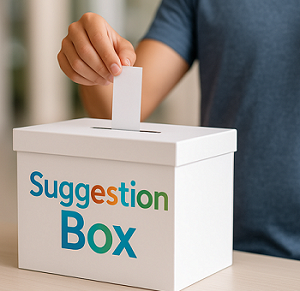10 Free & Engaging Ways to Promote Mental Health at Work (That Your Staff Will Actually Enjoy)
Building a workplace culture that supports mental health doesn’t always require big budgets. Sometimes, the most meaningful changes come from simple, inclusive initiatives that bring people together, spark conversation, and make wellbeing feel human.
Here are 10 free (or very low-cost) ideas to help your teams connect, reset, and take proactive steps toward better mental health, all while building a more supportive workplace culture.
1. Run Monthly Wellbeing Focus Groups - Invite staff to share what’s working, what’s not, and where they need more support. This creates psychological safety and gives your wellbeing strategy a holistic voice. Keep sessions informal and solutions focused.
2. Host Lunchtime Learning Sessions - Invite volunteers from your team to share tools that help their mental health such as journaling, breathwork, walking routines, playlists, sleep hygiene, emotional regulation, or helpful apps etc. Rotate topics monthly and create a culture of peer-led support and sharing.
3. Start a ‘Walk & Talk’ Club - Designate a day or time each week where people step away from their desks and take a walk together. Encourage walking meetings or fresh air check-ins, especially helpful for hybrid or remote teams.
4. Celebrate Awareness Days - Use national and international mental health awareness days as an anchor for conversation and connection. For example:
Time to Talk Day
Mental Health Awareness Week
World Kindness Day Invite stories, create discussion boards, or host a low-key virtual coffee chat themed around each event.
5. Create a Wellbeing Wall (Digital or Physical) - Invite staff to anonymously share tips, quotes, gratitude, or affirmations. This can be as simple as a shared Teams channel or a noticeboard in the kitchen. Seeing kind words and mental health support in visible places normalises self-care.
6. Set a Monthly Wellbeing Challenge - Pick themes that support balance and engagement e.g. "7 Hours of Sleep", "5k Steps a Day", “Digital Detox”, or “Acts of Kindness.” Invite staff to join in and share how they’re getting on. Keep it optional, light, and fun.
7. Support a Mental Health Charity Drive - Choose a charity like Mind, Samaritans, or CALM and get the team involved in fundraising or volunteering. Bake sales, fun runs, or charity auctions all bring people together while supporting a cause that aligns with your values.
8. Offer Anonymous Suggestion Boxes - Sometimes the best insights come from people who don’t feel confident to speak up. Give staff a safe space (physically or digitally) to suggest mental health improvements or flag concerns and action what you can.
9. Create a Quiet Space (or Digital Version) - Whether it’s a room onsite or a simple digital space where people can unplug and reset, let staff know they’re encouraged to take small breaks when they need to recharge. Add calming visuals, mindfulness prompts, or just offer silence.
10. Recognise Efforts, Not Just Outcomes - Use team shout-outs or manager 1-1s to acknowledge positive behaviours like setting boundaries, taking annual leave, or helping a colleague in need. Rewarding how people work, not just what they achieve, this reinforces healthy norms.
Lastly - Train First Aiders for Mental Health - Your Wellbeing Champions
We appreciate this final suggestion does have a cost, but we also know the ROI on Mental Health spend in the workplace is £5.20 to every £1 spent. * By having trained First Aiders for Mental Health within your teams, these staff can become your wellbeing champions and support the above Mental Health tools whist supporting your teams. See our various Mental Health Training Course here.
Final Thoughts
Mental health at work isn’t just about policies or crisis support. It’s about creating a culture where people feel safe to be human, to rest, to speak up, to try new habits, and to support each other.
These ideas are simple, scalable with a foundation in connection. When staff feel they can contribute to a mentally healthy culture, not just receive it, they feel more engaged, empowered, and valued.
*Source: Deloitte - Mental health and employers - Refreshing the case for investment – Jan 2020
The IWW Team



